Breaking Ground 104 - Skilled and Essential: Stories of Working during the Pandemic
A global pandemic changed many things, including how we work. While many people with disabilities have faced job loss or shorter hours, others have been able to keep working. We asked several people who are working during the pandemic: What has changed for you? What’s been positive? What’s been hard? What have you learned?
These are their stories.
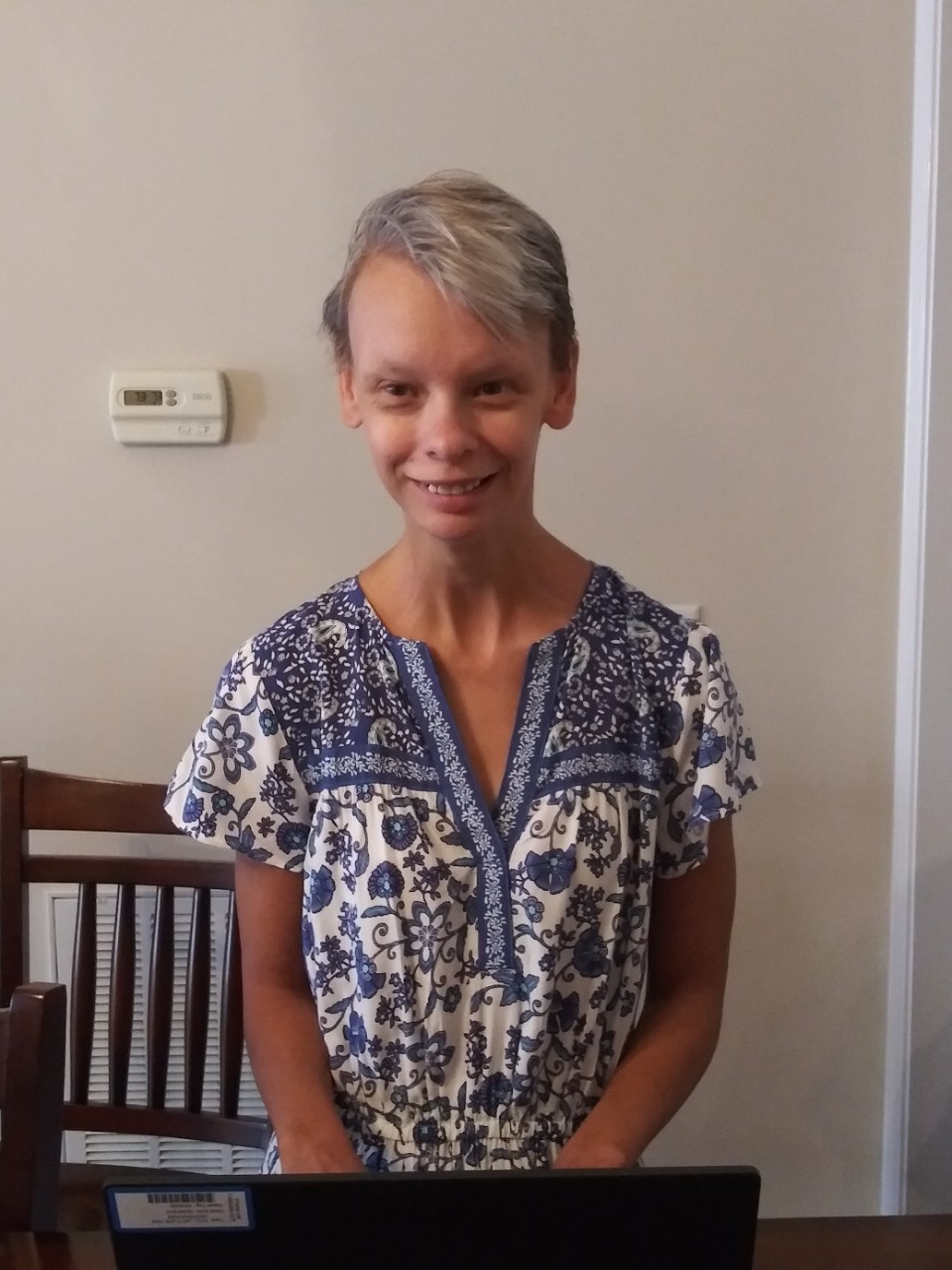
Clancey Hopper, Mid-Cumberland Development District Council member
United Healthcare
My job situation changed significantly as COVID-19 spread throughout Tennessee. The Grand Ole Opry, where I worked as a tour guide, was shut down. I came home on March 16 from my job at United Healthcare and started working from home on March 17. I have been working from home ever since then!
My living situation has changed, as well, as a result of the pandemic. I moved out of the home I was living in and now live happily with my family in Lebanon, Tenn. I manage my workflow quite well from home! I am very disciplined in my work and have created a productive work environment for myself. I only work three days a week.
The things that have been good about this time are being able to spend quality time with my family a few friends and rest more! The things that have been hard about this time for me have been dealing with anxiety, missing family and friends, and sadness. I have learned that it’s okay not to be okay. This is a strange and scary time we are living in. I have also learned more about self-awareness and how beautiful the breath truly is, and another day of life. The final and most important thing I have learned during this time is I have a greater appreciation and a deeper love for those I love, and time is a precious gift!
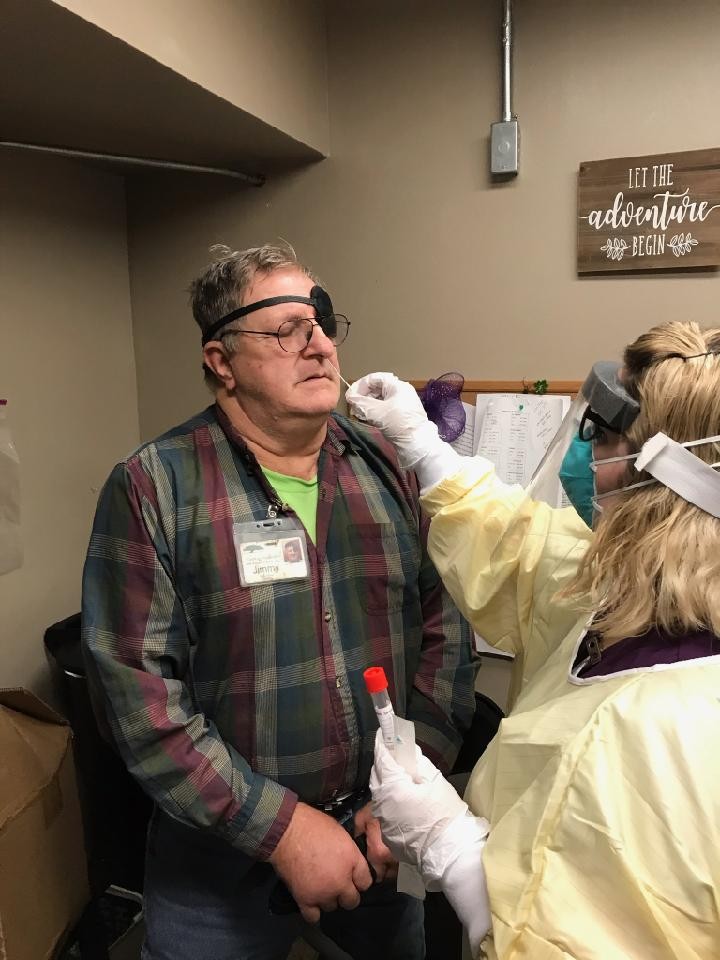
James (“Jimmy”) Moore
Van Ayer Senior Living and Rehabilitation
I work two days a week at Van Ayer Nursing Home in Martin, Tenn., in the dietary department. I stock all food and supplies: dry and canned food for the pantry, frozen food, and fresh food. My duties include purging rotting produce and out-of-date stock. I also do clean-up in my area – sweeping, wet mop, trash removal.
Since COVID-19, PPE is enforced at all times. We are distancing in dietary as much as possible in a kitchen. We all make maximum effort to keep persons and work areas sanitary.
In my life, I have much less social interaction, shopping, going out to eat, church. I like home but want to get out more. I go to work two days a week and the rest of the time am watching TV or listening to the radio. It has been boring at times, and lack of exercise has made it hard when I have to work. I have enjoyed being around my roommates. We try to make the best of the situation.
I have learned that by working at Van Ayer, I am surrounded by staff and coworkers who truly care about my well-being and the people they serve – all true professionals. The administration follows all safety guidelines to the letter. My SJCS [St. John’s Community Services – a provider agency] staff and administrators have done their best in this serious environment to take care of us and keep us safe. We are kept up to date with Relias online training: how to work and be safe at work, how to work and be safe at home. When working at Van Ayer, every time we work, our temperature is taken. A series of questions about our recent activity and contacts is logged. I am tested every Tuesday for COVID-19. It is my thought SJCS and Van Ayer have done a thorough job of keeping clients, consumers, and staff safe.
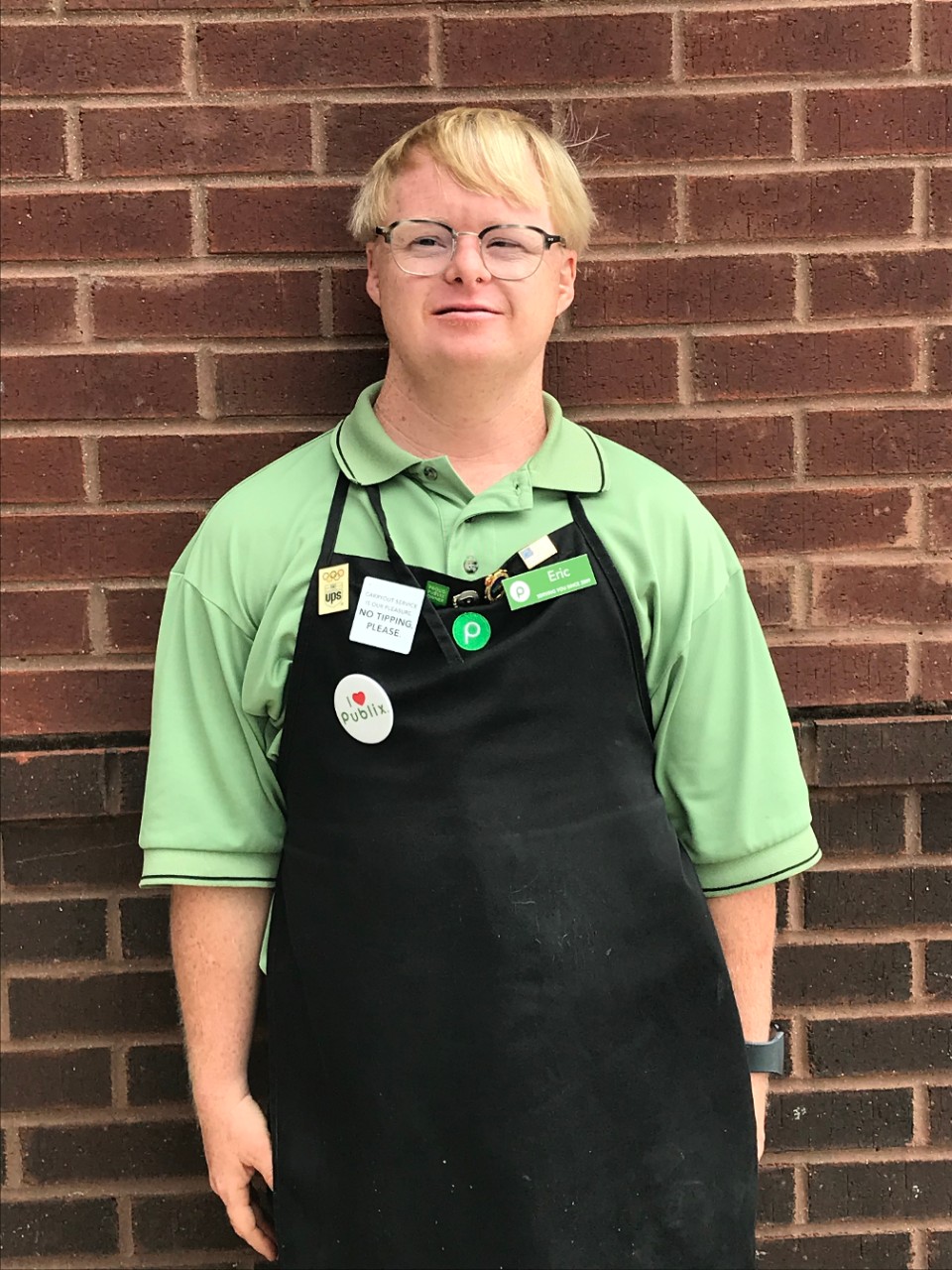
Eric Wilson, with mom Gina Wilson
Publix
Eric: I work at Publix, and I bag groceries and take people out to their cars.
Gina: He’s been at Publix for 11 years now, and it has been a growing process. To make sure that he learns all training, I take all classes with him. He can learn anything but maybe not at the pace of the training presentations. We practiced bagging at home for the first year or so and practice any new procedures at home, too, to prepare him for his job.
Eric: After COVID, I have to wear a mask all of the time, and it’s irritating. I have to wash my hands more and use hand sanitizer.
Gina: Eric’s dad and I decided to pull him from Publix in March, and we kept him home for two months before allowing him to return. We kept in close contact with Publix during that time. At home, we practiced over and over proper hand washing (which he just needed a reminding about how to do) and how to wear the mask, including putting it on and off. We practiced NOT touching our face and speaking louder so that customers could hear him through his mask.
Eric: COVID ruined my golf game, potluck bingo, and vacations. I don’tn get to see my friends or my grandparents as much. We have to wear masks all the time, and we don’t get to go out to eat – my favorite.
Gina: He FaceTimes with grandparents and really misses eating out.
Eric: I mostly work and stay home now. My family likes to walk and bike a lot.
Gina: Typically, he has about one activity a day outside of work, including Special Olympics (power lifting, golf, basketball, football, bowling, skiing, swimming), Faith Friends (a weekly Bible study), social hour at the rec center, and book club. His dad, John, and I have allowed him to return to his photography lessons, since they are now all outside and the teacher is awesome at keeping him safe.
Eric: The hardest part of COVID is not seeing friends and grandparents, no Bible study, and no potluck bingo. I can’t go out to eat yet, and I miss that.
Gina: We watch him closely to make sure he’s not lonely or getting depressed because of the isolation. We keep him busy, which is best for him.
Eric: One good thing about this time is I’ve lost some weight from not eating out, and from walking a lot. I spend a lot of time with mom and dad and have time to watch a movie. One thing I have learned is that wearing a mask is not fun, but it helps make COVID go away.
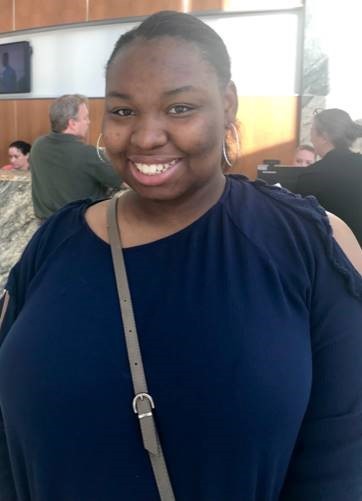
L’Mya Muhammad
Blue Cross Blue Shield, Fulfillment Department
As COVID-19 began to spread, I went from part-time to full. There were lots of schedule changes. We were short of staff and supplies. There was more social distancing, and I had to work with a lot of different people. I got to learn new tasks to help cover what was needed.
Things that have been hard are mainly struggling with transportation, since bus routes changes and are not running as often. Also, new scheduling of work.
I have learned that I can do more than I thought I could before.
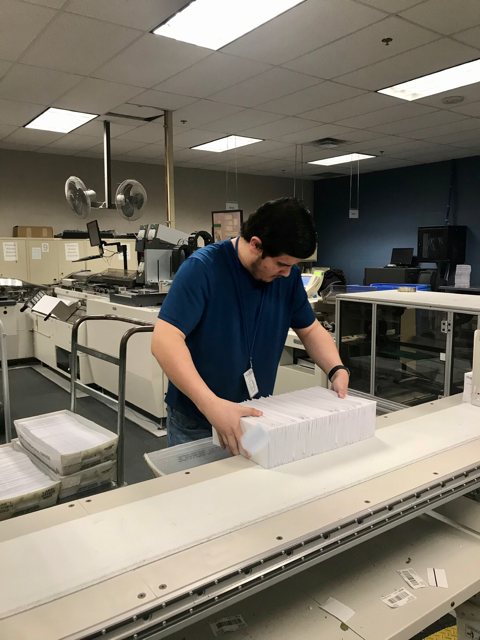
Manases Gonzalez
Blue Cross Blue Shield, Outgoing Mail Department
After COVID-19, my schedule changed. I had earlier shifts because they grouped us into two groups. I worked longer hours, waking up earlier. I worries some when others got COVID.
Everyone is wearing masks and keeping social distancing. It has slowed down the spread. This time has not really been hard for me, but for others that were exposed, it was hard.
I have learned that I can keep going, regardless.